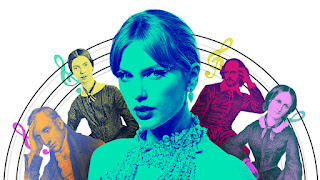Mahesh - Week 3: A Crucial Component
Mahesh - Week 3: A Crucial Component
Everyone should have some hobby to fall back on when feeling exhausted. In my case, that hobby has always been the game of chess; I play with some friends online or with my brother at home. Chess influences me significantly, shaping many personal connections that I have built. My grandfather taught me the game’s rules and explained some of the basic strategies I use to win. I learned this game at a young age, but my dad was not often available to play with at home. Unfortunately, I lost my interest in the game for a long while.
However, during the COVID-19 pandemic, my brother was suddenly interested in the game of chess and invited me to dust off my old chessboard and play with him frequently. My dad had played with my brother and easily defeated him—my brother could not rest until he could get revenge. We created online chess accounts and played online; until our ratings began improving. Ever since we started playing, my brother expressed great enthusiasm for the game of chess. Having observed this, I decided to intervene and enroll my brother in a chess class. We began attending tournaments together, where I would accompany him to his tournaments and help him prepare before his games. In this manner, chess has connected me and my brother emotionally—the game has always been something that we bond over.
I have been to more of his tournaments than I can remember. Although I do not remember specific games, I do remember the times I consoled him after tough losses—losing critical games that decided prestigious state and national titles. I have also seen many wins that inspired me to play more chess. I am proud to be an inspiration and the biggest support I can for my brother.
When I see chess-related commercials or chess-related themes in advertisements, I get reminded of my personal stories behind playing the game of chess. I look forward to forging new bonds and reliving old ones through playing chess.
Chess is a game that has been proven to have many benefits; some of which you can analyze here: https://www.healthline.com/health/benefits-of-playing-chess
“A Game Designer Thinks He Can Improve on Chess’ 1,500-Year-Old Rules,” smithsonianmag.org, 20 December 2013, https://www.smithsonianmag.com/smart-news/a-game-designer-thinks-he-can-improve-on-chess-1500-year-old-rules-180948179/. Accessed 26 September 2023.


I think many of us have found a new hobby to spend our tie on especially after the pandemic especially ones that have something to do with our siblings; for my sister and I it was boardgames. I think that your writing truly encapsulates the emotional depth and dedication especially being there for all the wins and all the losses. By signing him up for chess classes and accompany him to tournaments shows your commitment and passion. In a way I would say you played a role in shaping his identity. I like how your closing statement about looking forward to forming new bonds and reliving old ones ties up the message and leaves the reader in optimism.
ReplyDeleteHello Mahesh. I personally know how chess affects the person, his/her behavior and their changes in their identity. I used to play chess for a few years in elementary school and played with my friends, coaches, or my parents. I found that a good chess game can go a long way. As you mentioned how chess was used as a source of entertainment and a genuine knowledge of who you are as a person when playing this amazing game. I loved how throughout this whole article, you continued to describe you and your experiences. It is good to see how your knowledge and deep understanding for the game of chess can influence you as a person forever. The transitions between the paragraphs were written thoroughly and in general, a great piece of work! Keep it up!
ReplyDelete